
All IR training courses are available at our infrared training centre in Canada. All courses also meet ASNT training requirements for the certification of NDT personnel. All IR Certifications for Level 1, Level 2, Level 3 and sUAS Thermography Level 1 for drone operators have LIFETIME VALIDITY and do not require re-certification.
Courses are divided into narrated one-hour lecture units and are designed to build upon the previous units for advanced learning. Course content has been prepared and written by our team of Subject Matter Experts who are Level 3 Certified Infrared Thermographers, each having over 20 years of professional experience. All courses also available as classroom training, instructor led delivery onsite at your location for a group of workplace employees.
All courses are compliant with latest industry standards including ASTM; ANSI; ASNT; NETA and ISO. All courses and Reference Manuals are constantly updated with the latest applications, practices and Standards based on research by a team of subject matter experts , graduates and other key personnel in the industry.
Course completion qualifies students to take the Certified Infrared Thermographer exam. Exams are available at no charge if taken onsite. Exams may also be taken online via a secure video link or at authorized testing centers.
Students completing 32 hours of infrared training may achieve their infrared certification by passing our Certified Infrared Thermographer exam.
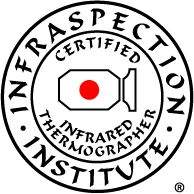

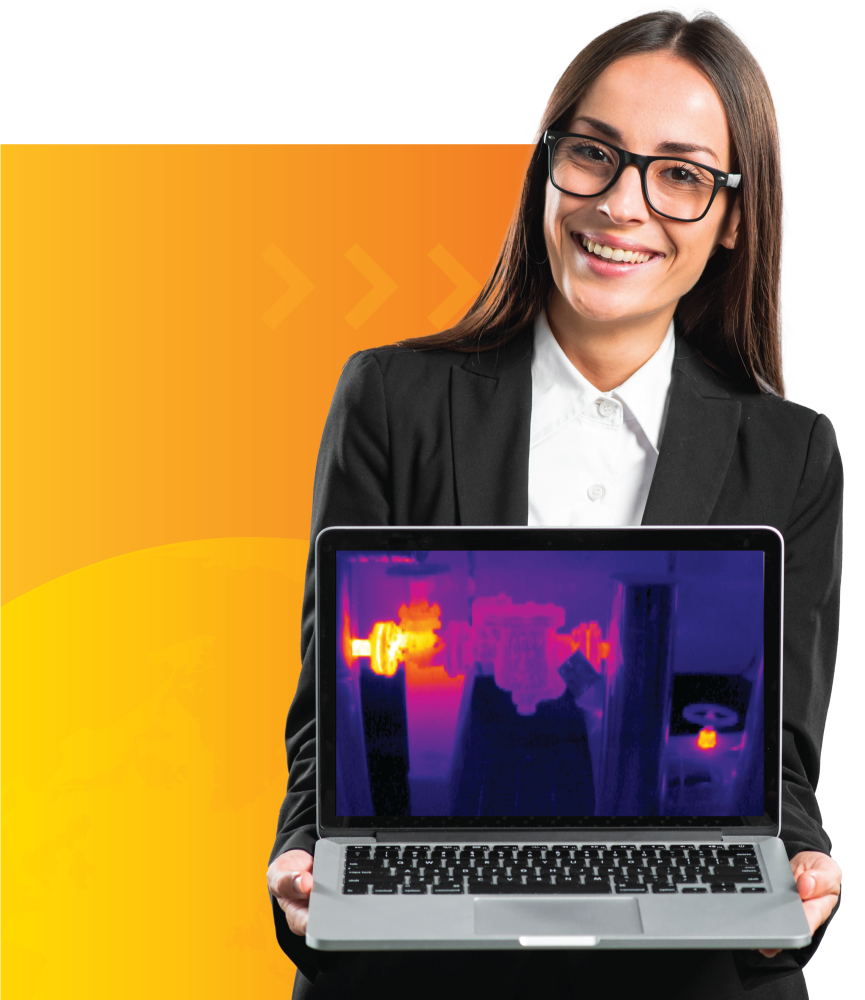
Students who successfully complete 32 hours of e-Learning instruction are eligible to take the Certified Infrared Thermographer exam. These exams are administered at regularly scheduled open enrolment classes and at the annual IR/INFO training conference. As an alternative, students may also take their exam via an online video conference link with one of our Level III Distance Learning Instructors.
Our training courses, Reference Manuals and examinations can qualify a student for Level I, Level II and Level III employer based certification in accordance with the ASNT document, SNT-TC-1A and help prepare students to take the optional ASNT Level III National Exam in Thermal/Infrared Testing Methods.
Published standards, Exception Data Management and Reporting Software are also available.
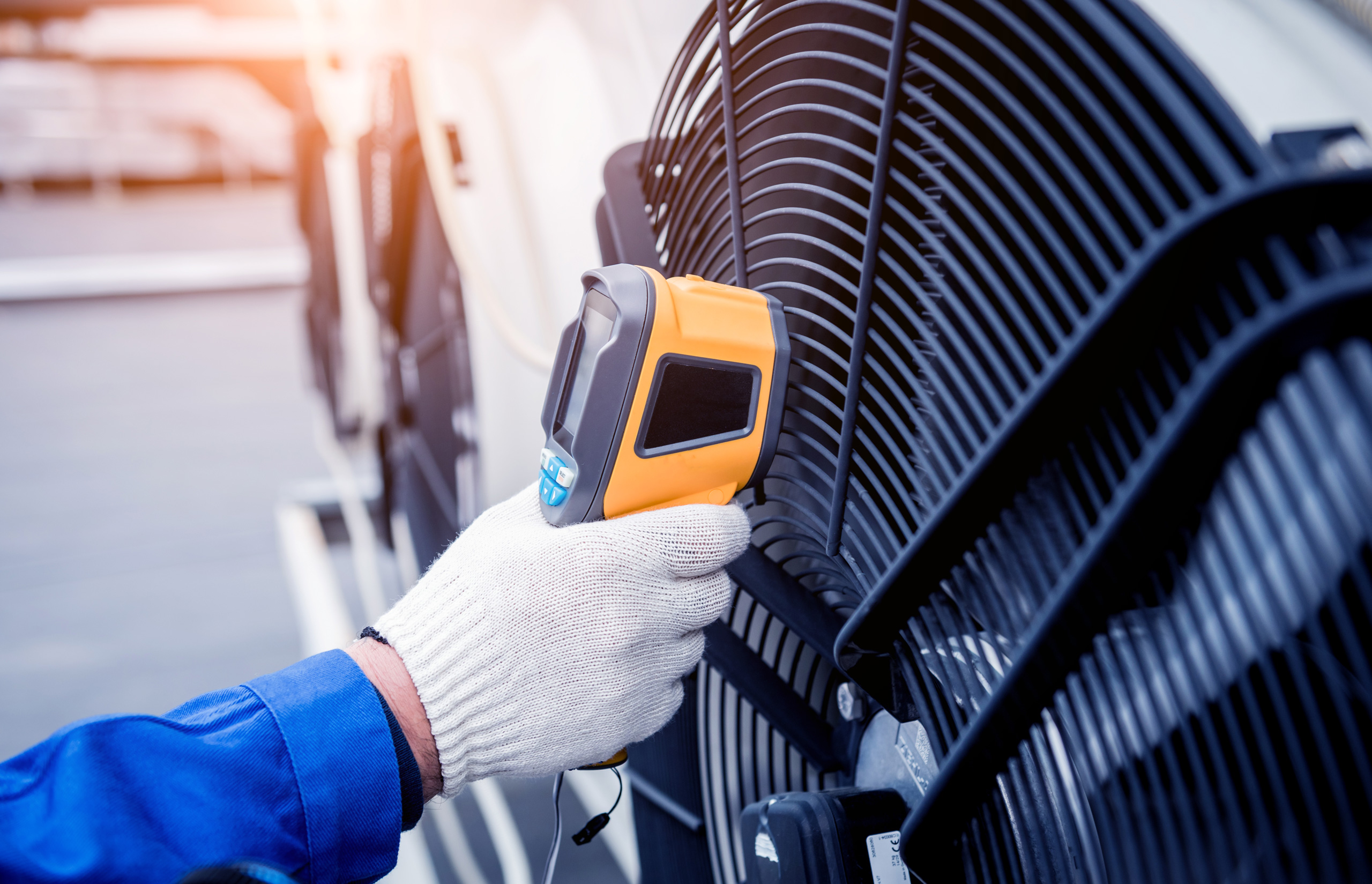
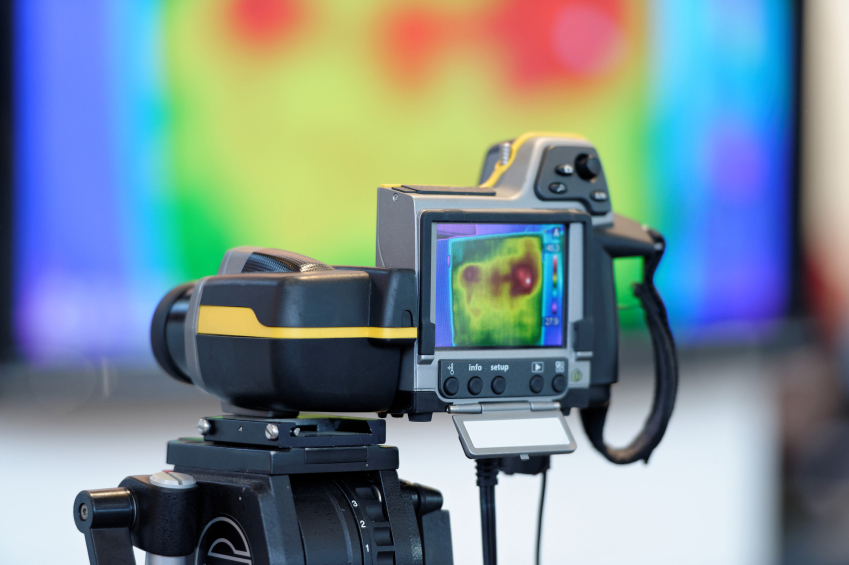
Prerequisite: None
Level 1 Infrared Thermographer Refresher Course is also available.
Level 1 Thermography is a 32 hour online course for the application of qualitative thermal imaging for P/PM, Condition Assessment, Condition Monitoring, Quality Assurance, Forensic Investigations, and Building Sciences. This course covers infrared theory, heat transfer concepts, equipment operation and selection, standards compliance, image analysis and report generation.
Students are trained to identify and document thermal patterns caused by improper design, workmanship or material failure. Specific applications include: electrical distribution systems, mechanical systems, steam systems, refractory systems, underground piping, active thermography, building envelopes and flat roofs.
Self directed learning activities are provided to help student gain practical experience; however, one need not have a to successfully complete the course.
Course tuition includes 24 hour access to all online Course Presentations, Student Reference Manual, online Quizzes, Self-directed Field Assignments, and Proof of Course Completion. Student must complete training within 60 days of registration.
Course completion qualifies students to take the Certified Infrared Thermographer exam. Exams are available at no charge if taken onsite. For a nominal fee, exams may also be taken online via a secure video link or at authorized testing centers.
This course is eligible for 32 NETA Continuing Technical Development Credits (CTDs). NETA Certified Technicians (Level 3 and Level 4) are required to earn a minimum of 48 CTDs every three years to maintain their certification.
The Level 1 Course is approved by the International Association of Certified Home Inspectors for 32 hours of continuing education and meets the training requirements for their Infrared Certified professional designation and logo.
The Course is also approved for 32 Continuing Education Hours (CEH) by RCI, Inc.
US Armed Forces veterans may qualify for a partial tuition scholarship through the Christopher Seffrin Memorial Scholarship for Veterans.

*IR camera equipment is NOT required to successfully complete the course. Course is not based on any IR manufacturer’s equipment.
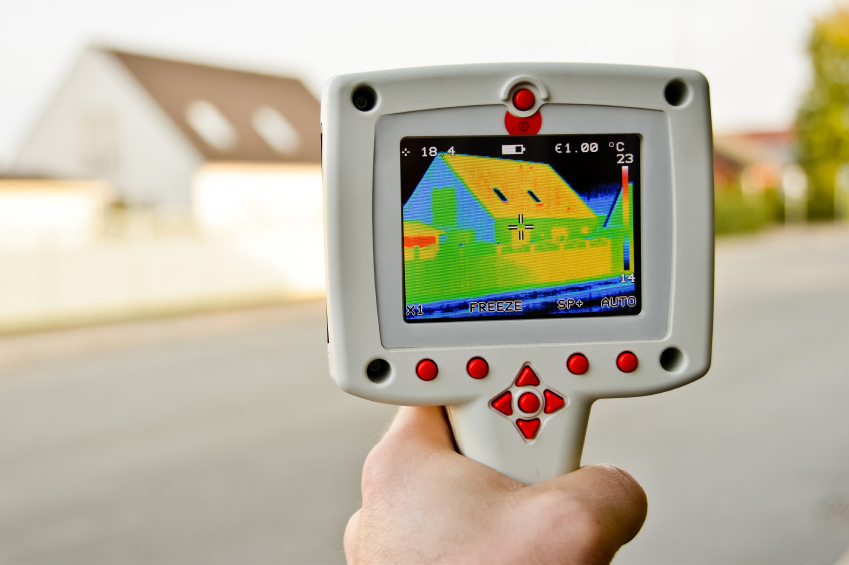
Prerequisite: Level 1 Certification
Level 2 Infrared Thermographer Refresher Course is also available.
Level 2 Thermography is a 32 hour online course for the application for the application of quantitative thermal imaging and temperature measurement for P/PM, Condition Monitoring, Quality Assurance and Forensic Investigations.
This course covers advanced infrared theory, equipment calibration, error sources, cross-verification with contact thermometers, advanced equipment operation, use of windows and filters, assigning temperature limits and repair priorities, and quantitative report generation.
Self directed learning activities are provided to help student gain practical experience; however, one need not have a to successfully complete the course.
Course tuition includes 24 hour access to all online Course Presentations, Student Reference Manual, online Quizzes, Self-directed Field Assignments, and Proof of Course Completion. Student must complete training within 60 days of registration.
This course is eligible for 32 NETA Continuing Technical Development Credits (CTDs). NETA Certified Technicians (Level 3 and Level 4) are required to earn a minimum of 48 CTDs every three years to maintain their certification.
Course is approved by the International Association of Certified Home Inspectors for 32 hours of continuing education and meets the training requirements for their Infrared Certified professional designation and logo.
Course completion qualifies students to take the Certified Infrared Thermographer exam. Exams are available at no charge if taken onsite. For a nominal fee, exams may also be taken online via a secure video link or at authorized testing centers.
US Armed Forces veterans may qualify for a partial tuition scholarship through the Christopher Seffrin Memorial Scholarship for Veterans.
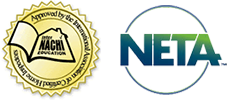
*IR camera equipment is NOT required to successfully complete the course. Course is not based on any IR manufacturer’s equipment.
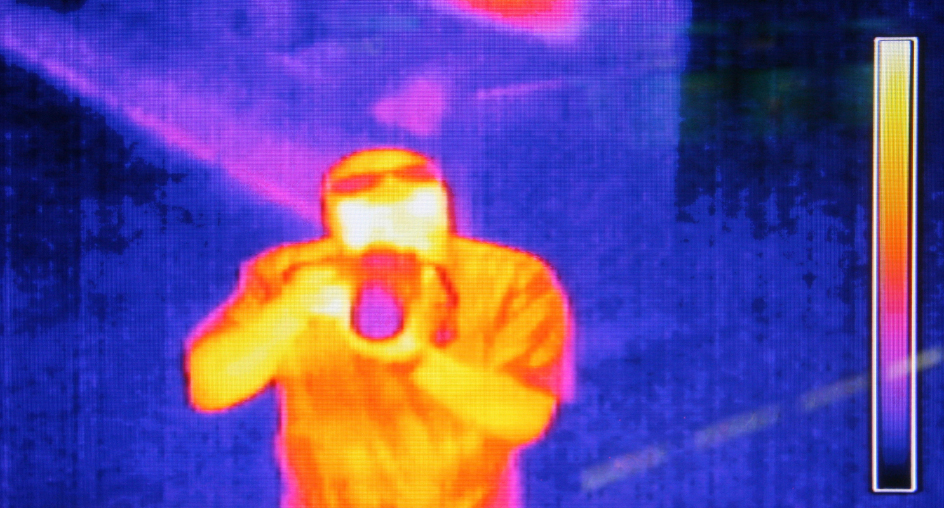
Prerequisite: Level 2 Certification
Level 3 Infrared Thermographer Refresher Course is also available.
Level 3 Thermography is a 21 hour online course focused on best practices for infrared inspections and associated activities. This course contains information vital to the long term success of an infrared inspection program.
This course covers advanced topics related to developing, implementing, and managing a successful infrared inspection program. Topics include: latest applications, hardware and software, current industry standards and specifications, OSHA and NFPA safety standards, marketing and promoting an infrared inspection program, thermography as legal documentation, current industry certification criteria, and how to develop and implement standards-compliant written practices and procedures.
Self directed learning activities are provided to help student gain practical experience; however, one need not have a to successfully complete the course.
Course tuition includes 24 hour access to all online Course Presentations, Student Reference Manual, online Quizzes, Self-directed Field Assignments, and Proof of Course Completion. Student must complete training within 60 days of registration.
Course is approved by the International Association of Certified Home Inspectors for 21 hours of continuing education and meets the training requirements for their Infrared Certified professional designation and logo.
Course completion qualifies students to take the Certified Infrared Thermographer exam. Exams are available at no charge if taken onsite. For a nominal fee, exams may also be taken online via a secure video link or at authorized testing centers.
US Armed Forces veterans may qualify for a partial tuition scholarship through the Christopher Seffrin Memorial Scholarship for Veterans.
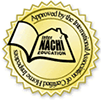
*IR camera equipment is NOT required to successfully complete the course. Course is not based on any IR manufacturer’s equipment.
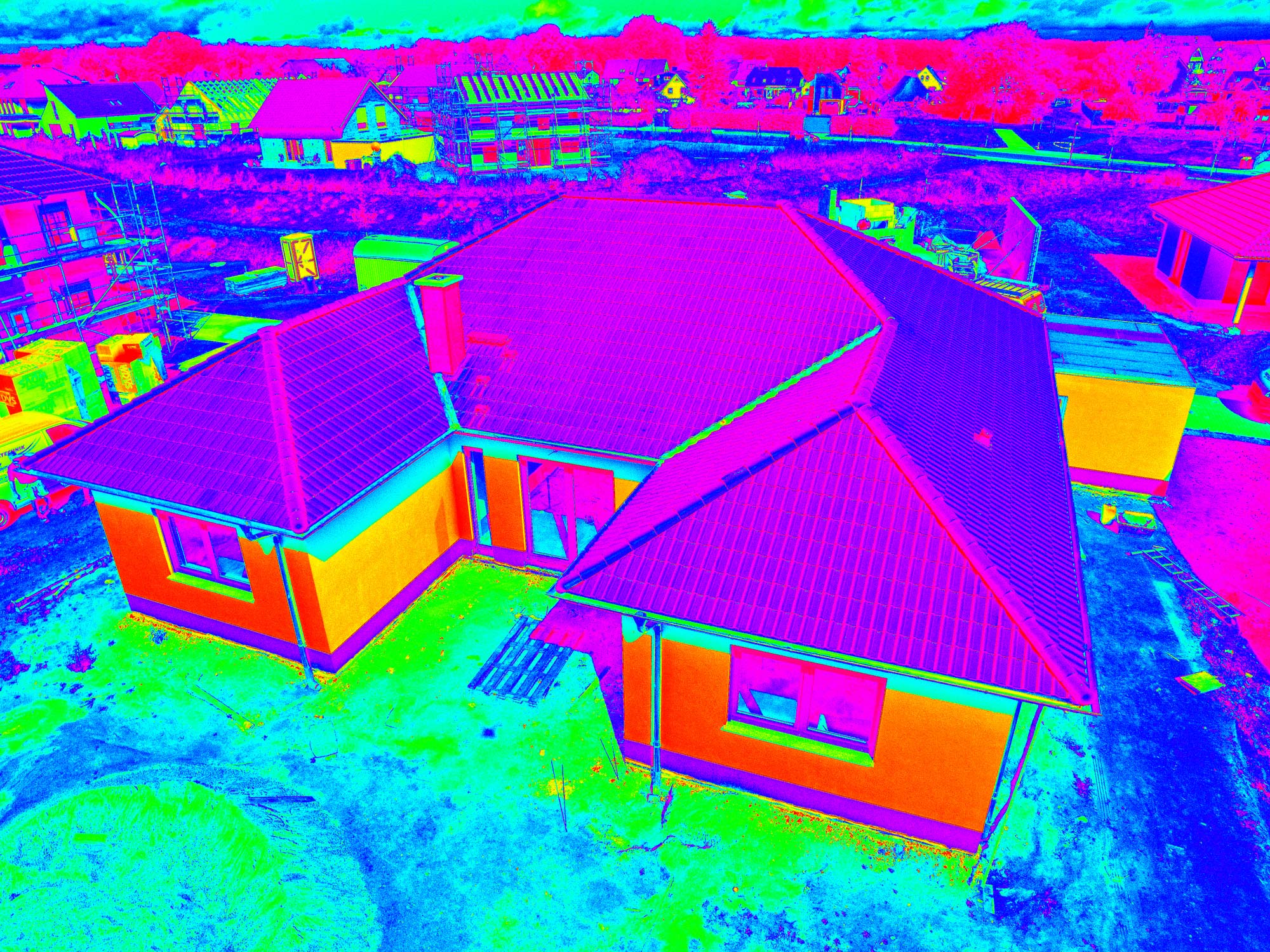
Prerequisite: None
sUAS Thermography is a 20-hour online certification course for the application of qualitative infrared imaging using a drone-based thermal imager.
This course covers infrared theory, heat transfer concepts, equipment operation and selection, standards compliance, image analysis, and report generation.
Students are trained to identify and document thermal patterns caused by improper design, workmanship, or material failure. Specific applications include: electrical distribution systems, mechanical systems, steam systems, refractory systems, underground piping, active thermography, building envelopes, and flat roofs.
Self-directed learning activities are provided to help the student gain practical experience; however, one need not have thermal imaging equipment to successfully complete the course.
Course tuition includes 24 hour access to all online Course Presentations, Student Reference Manual, online Quizzes, Self-directed Field Assignments, and Proof of Course Completion. Student must complete training within 60 days of registration.
Course completion qualifies student to take the Infraspection Institute Certified sUAS Thermographer exam. Exams are available at no charge at the end of regularly scheduled open enrollment classes or at the annual IR/INFO Conference. Exams may also be taken via secure video link online or at authorized testing centers.
US Armed Forces veterans may qualify for a partial tuition scholarship through the Christopher Seffrin Memorial Scholarship for Veterans.

*IR camera equipment is NOT required to successfully complete the course. Course is not based on any IR manufacturer’s equipment.

Prerequisite: None
IR Thermography for Optical Gas Imaging is a 12-hour theory and application course for the use of thermal imaging to detect and document thermal patterns associated with gas leaks and venting. This is a specialty certification course focused on a single application.
This course covers infrared theory, heat transfer concepts, equipment selection and operation, detectable gases, inspection procedures, image analysis, report generation, and standards compliance.
Students are trained to identify and document thermal patterns caused by gas leaks or gas venting for several types of gases including hydrocarbons, Sulphur Hexafluoride, Carbon Dioxide, Carbon Monoxide, Ammonia, and refrigerants. Self-directed learning activities are provided to help students gain practical experience; however, one need not have a camera to successfully complete the course.
Course tuition includes 24/7 access to all online course presentations, downloadable Student Reference Manual, online quizzes, final exam fee and written proof of course completion. Student must complete training within 60 days of registration.
Prerequisite: None
Infrared Inspection for Electrical Systems is a 16 hour theory and application online course for the use of thermal imaging to locate and evaluate problems in electrical distribution systems. This is a non-certification course that focuses on this single application. Course attendance may be applied to training requirements for thermographer certification.
This course covers infrared theory, heat transfer concepts, equipment operation and selection, standards compliance, image analysis and report generation.
Self directed learning activities are provided to help student gain practical experience; however, one need not have a to successfully complete the course.
Course tuition includes 24 hour access to all online Course Presentations, Student Reference Manual, online Quizzes, Self-directed Field Assignments and Proof of Course Completion. Student must complete training within 60 days of registration.
Prerequisite: None
Infrared Inspection of Mechanical Systems is a 16 hour theory and application online course for the use of thermal imaging to locate and evaluate problems in mechanical systems. This is a non-certification course that focuses on these specific applications. Course attendance may be applied to training requirements for thermographer certification.
This course covers infrared theory, heat transfer concepts, equipment operation and selection, standards compliance, image analysis and report generation.
Students are trained to identify and document thermal patterns caused by improper design, workmanship or material failure. Self directed learning activities are provided to help student gain practical experience; however, one need not have a to successfully complete the course.
Course tuition includes 24 hour access to all online Course Presentations, Student Reference Manual, online Quizzes, Self-directed Field Assignments, and Proof of Course Completion. Student must complete training within 60 days of registration.
Prerequisite: None
Infrared Inspection of Electro/Mechanical Systems is a 24 hour theory and application online course for the use of thermal imaging to locate and evaluate problems in electrical distribution and mechanical systems. This is a non-certification course that focuses on these specific applications. Course attendance may be applied to training requirements for thermographer certification.
This course covers infrared theory, heat transfer concepts, equipment operation and selection, standards compliance, image analysis and report generation.
Students are trained to identify and document thermal patterns caused by improper design, workmanship or material failure. Self directed learning activities are provided to help student gain practical experience; however, one need not have a to successfully complete the course.
Course tuition includes 24 hour access to all online Course Presentations, Student Reference Manual, online Quizzes, Self-directed Field Assignments, and Proof of Course Completion. Student must complete training within 60 days of registration.
Prerequisite: None
Infrared Inspection of Building Envelopes and Roofs is an 18 hour theory and application online course for the use of thermal imaging to locate and evaluate energy loss and moisture problems within building envelopes and insulated roofing systems. This is a non-certification course that focuses on these specific applications. Course attendance may be applied to training requirements for thermographer certification.
This course covers infrared theory, heat transfer concepts, equipment operation and selection, standards compliance, image analysis and report generation.
Students are trained to identify and document thermal patterns caused by improper design, workmanship or material failure. Self directed learning activities are provided to help student gain practical experience; however, one need not have a to successfully complete the course.
Course tuition includes 24 hour access to all online Course Presentations, Student Reference Manual, online Quizzes, Self-directed Field Assignments, and Proof of Course Completion. Student must complete training within 60 days of registration.
Prerequisite: None
Infrared Inspection of Petrochemical Facilities is a 21 hour theory and application online course for the use of thermal imaging to locate and evaluate problems in oil and chemical processing plants. Topics covered include electrical distribution equipment, mechanical systems, high temperature processing equipment, and infrared inspection of boiler and heater tubes. This is a non-certification course that focuses on these specific applications. Course completion may be applied to training requirements for thermographer certification.
This course covers infrared theory, heat transfer concepts, equipment operation and selection, standards compliance, image analysis and report generation.
Students are trained to identify and document thermal patterns caused by improper design, workmanship or material failure. Self directed learning activities are provided to help student gain practical experience; however, one need not have a camera to successfully complete the course.
Course tuition includes 24 hour access to all online Course Presentations, Student Reference Manual, online Quizzes, Self-directed Field Assignments, and Proof of Course Completion. Student must complete training within 60 days of registration.
Prerequisite: None
Infrared Thermography for Building Sciences is a 32 hour theory and application online course for the use of thermal imaging to locate and evaluate problems in building envelopes and building subsystems. Topics covered include electrical distribution equipment, mechanical systems, building sidewalls, HVAC systems, steam traps, and insulated roofs. This is a non-certification course that focuses on these specific applications. Course completion may be applied to training requirements for thermographer certification.
This course covers infrared theory, heat transfer concepts, equipment operation and selection, standards compliance, image analysis and report generation.
Students are trained to identify and document thermal patterns caused by improper design, workmanship or material failure. Self directed learning activities are provided to help student gain practical experience; however, one need not have a camera to successfully complete the course.
Course tuition includes 24 hour access to all online Course Presentations, Student Reference Manual, online Quizzes, Self-directed Field Assignments, and Proof of Course Completion. Student must complete training within 60 days of registration.

Prerequisite: None
Inspection for Weatherization Professionals is a 14 hour theory and application online course for the use of thermal imaging as a diagnostic tool for use in the weatherization of building envelopes. This is a non-certification course that focuses on the use of a thermal imager to inspect building envelopes and building subsystems. Course completion may be applied to training requirements for thermographer certification.
Course provides in-depth and practical instruction for thermographically detecting hidden problems building sidewalls, roofs, HVAC ducts, and related building subsystems. Course attendance may be applied to training requirements for thermographer certification through Infraspection Institute and the International Association of Certified Home Inspectors.
This course covers infrared theory, heat transfer concepts, equipment operation and selection, using a thermal imager in conjunction with a blower door, standards compliance, image analysis, tools for confirming infrared data, and report generation.
Students are trained to identify and document thermal patterns caused by improper design, workmanship or material failure. Self directed learning activities are provided to help student gain practical experience; however, one need not have a camera to successfully complete the course.
Course tuition includes 24 hour access to all online Course Presentations, Student Reference Manual, online Quizzes, Self-directed Field Assignments, and Proof of Course Completion. Student must complete training within 60 days of registration.
Course qualifies for 14 hours of continuing education by the International Association of Certified Home Inspectors and meets the training requirements for their Infrared Certified professional designation and logo.
Prerequisite: None
Infrared Body Temperature Screening is a 5 unit theory and application course for the use of thermal imaging to detect elevated body temperature in humans. This is a specialized course focused on a single application. Course is equivalent to a five hour classroom course with a two hour period allotted for the online exam at the end of the course. Course completion may be applied toward training requirements for Level 1, 2, or 3 thermographer certification.
This course covers infrared theory, heat transfer concepts, equipment operation and selection, current regulations, standards compliance, screening area setup and procedures, adjunctive equipment, and safety issues. The course is designed for program managers and for operators of infrared body temperature screening systems.
Students are trained to set up and operate both purpose-built and industrial grade thermal imagers suitable for human body temperature screening. Self directed learning activities are provided to help student gain practical experience; however, one need not have an infrared imager to successfully complete the course.
Course tuition includes 24/7 access to all online course presentations, downloadable Student Reference Manual, online exam, and written proof of course completion. Student must complete training within 14 days of registration.
Prerequisite: None
Infrared Inspections for Home and Building Inspectors is a 16 hour theory and application online course for the use of thermal imaging for residential and commercial properties. Designed specifically for home and building inspectors, students are taught how to locate common deficiencies in building envelopes, insulated roofs and building subsystems.
Course provides in-depth and practical instruction for thermographically detecting hidden problems in electrical systems, HVAC systems, roofs, and building sidewalls. Course also covers how to successfully market, price and sell infrared inspection services. Course attendance may be applied to training requirements for thermographer certification through Infraspection Institute and the InterNational Association of Certified Home Inspectors. This course covers infrared theory, heat transfer concepts, equipment operation and selection, standards compliance, image analysis and report generation.
Students are trained to identify and document thermal patterns caused by improper design, workmanship or material failure. Self directed learning activities are provided to help student gain practical experience; however, one need not have a camera to successfully complete the course.
Course tuition includes 24 hour access to all online Course Presentations, Student Reference Manual in electronic format, online Quizzes, Self-directed Field Assignments, and Proof of Course Completion. Students must complete training within 60 days of registration.
Course qualifies for 16 hours of continuing education by the International Association of Certified Home Inspectors and meets the training requirements for their Infrared Certified professional designation and logo.

Prerequisite: None
Infrared Inspections for Home and Building Inspectors is a 16 hour theory and application online course for the use of thermal imaging for residential and commercial properties. Designed specifically for home and building inspectors, students are taught how to locate common deficiencies in building envelopes, insulated roofs and building subsystems.
Course provides in-depth and practical instruction for thermographically detecting hidden problems in electrical systems, HVAC systems, roofs, and building sidewalls. Course also covers how to successfully market, price and sell infrared inspection services.
This course covers infrared theory, heat transfer concepts, equipment operation and selection, standards compliance, image analysis and report generation.
Students are trained to identify and document thermal patterns caused by improper design, workmanship or material failure. Self directed learning activities are provided to help student gain practical experience; however, one need not have a camera to successfully complete the course.
Course tuition includes 24 hour access to all online Course Presentations, Student Reference Manual in electronic format, online Quizzes, Self-directed Field Assignments, and Proof of Course Completion. Students must complete training within 60 days of registration.
Course qualifies for 16 hours of continuing education by the International Association of Certified Home Inspectors and meets the training requirements for their Infrared Certified professional designation and logo.

Prerequisite: None
Infrared Thermography for Integrated Pest Management Professionals is a 34 hour theory and applications online course for the application of thermal imaging for Pest Detection, P/PM, Condition Monitoring, Quality Assurance and Forensic Investigations.
This course covers infrared theory, heat transfer concepts, equipment operation and selection, standards compliance, image analysis and report generation.
Students are trained to identify and document thermal patterns caused by improper design, workmanship or material failure. Applications include: detection of pests and pest related damage, electrical distribution systems, mechanical systems, steam systems, refractory systems, underground piping, active thermography, building envelopes and flat roofs.
Students are trained to identify and document thermal patterns caused by improper design, workmanship or material failure. Self directed learning activities are provided to help student gain practical experience; however, one need not have a camera to successfully complete the course.
Course tuition includes 24 hour access to all online Course Presentations, Student Reference Manual, online Quizzes, Self-directed Field Assignments, and Proof of Course Completion. Student must complete training within 60 days of registration.
Course completion qualifies students to take the Certified Infrared Thermographer exam. Exams are available at no charge if taken onsite. For a nominal fee, exams may also be taken online via a secure video link or at authorized testing centers.
Prerequisite: None
Infrared Inspection of Building Envelopes and Roofs is an 18 hour theory and application online course for the use of thermal imaging to locate and evaluate energy loss and moisture problems within building envelopes and insulated roofing systems. This is a non-certification course that focuses on these specific applications. Course attendance may be applied to training requirements for thermographer certification.
This course covers infrared theory, heat transfer concepts, equipment operation and selection, standards compliance, image analysis and report generation.
Students are trained to identify and document thermal patterns caused by improper design, workmanship or material failure. Self directed learning activities are provided to help student gain practical experience; however, one need not have a camera to successfully complete the course.
Course tuition includes 24 hour access to all online Course Presentations, Student Reference Manual, online Quizzes, Self-directed Field Assignments, and Proof of Course Completion. Student must complete training within 60 days of registration.
Prerequisite: None
Infrared Inspection of Building Envelopes & Roofs is an 18 hour theory and application online course for the use of thermal imaging to locate and evaluate energy loss and moisture problems within building envelopes and insulated roofing systems. This is a non-certification course that focuses on these specific applications. Course attendance may be applied to training requirements for thermographer certification.
This course covers infrared theory, heat transfer concepts, equipment operation and selection, standards compliance, image analysis and report generation.
Students are trained to identify and document thermal patterns caused by improper design, workmanship or material failure. Self directed learning activities are provided to help student gain practical experience; however, one need not have a camera to successfully complete the course.
Course tuition includes 24 hour access to all online course presentations, Student Reference Manual, online Quizzes, Self-directed Field Assignments, and Proof of Course Completion. Student must complete training within 60 days of registration.
Prerequisite: None
Infrared Inspection for Electrical Systems is a 16 hour theory and application online course for the use of thermal imaging to locate and evaluate problems in electrical distribution systems. This is a non-certification course that focuses on this single application. Course attendance may be applied to training requirements for thermographer certification.
This course covers infrared theory, heat transfer concepts, equipment operation and selection, standards compliance, image analysis and report generation.
Students are trained to identify and document thermal patterns caused by improper design, workmanship or material failure. Self directed learning activities are provided to help student gain practical experience; however, one need not have a camera to successfully complete the course.
Course tuition includes 24 hour access to all online Course Presentations, Student Reference Manual, online Quizzes, Self-directed Field Assignments and Proof of Course Completion. Student must complete training within 60 days of registration.
Prerequisite: None
Level 1 Infrared Thermographer Refresher Course is also available.
Level 1 Thermography is a 32 hour online course for the application of qualitative thermal imaging for P/PM, Condition Assessment, Condition Monitoring, Quality Assurance, Forensic Investigations, and Building Sciences.
This course covers infrared theory, heat transfer concepts, equipment operation and selection, standards compliance, image analysis and report generation.
Students are trained to identify and document thermal patterns caused by improper design, workmanship or material failure. Specific applications include: electrical distribution systems, mechanical systems, steam systems, refractory systems, underground piping, active thermography, building envelopes and flat roofs.
Self directed learning activities are provided to help student gain practical experience; however, one need not have a camera to successfully complete the course.
Course tuition includes 24 hour access to all online Course Presentations, Student Reference Manual, online Quizzes, Self-directed Field Assignments, and Proof of Course Completion. Student must complete training within 60 days of registration.
Course completion qualifies students to take the Certified Infrared Thermographer exam. Exams are available at no charge if taken onsite. For a nominal fee, exams may also be taken online via a secure video link or at authorized testing centers.
This course is eligible for 32 NETA Continuing Technical Development Credits (CTDs). NETA Certified Technicians (Level III and Level IV) are required to earn a minimum of 48 CTDs every three years to maintain their certification.
Course is approved by the International Association of Certified Home Inspectors for 32 hours of continuing education and meets the training requirements for their Infrared Certified professional designation and logo.
Course is also approved for 32 Continuing Education Hours (CEH) by RCI, Inc.
US Armed Forces veterans may qualify for a partial tuition scholarship through the Christopher Seffrin Memorial Scholarship for Veterans.

Prerequisite: None
As the science of thermography expands, it continues to attract individuals and companies looking for business opportunities. Despite the acceptance of thermography, many companies struggle or fail at their attempts in offering this proven technology. Success in any consulting businesses requires a combination of technical and business skills and thermography is no exception.
Starting, Marketing and Managing and IR Consulting Company online course will focus on the fundamentals required to start, market and maintain an infrared consulting company.
This material is intended for anyone wishing to start an infrared consulting business or to expand the service offerings of an established business. Course is designed for beginners and experienced thermographers.
Length of presentation: 40 minutes
Course availability: 24 hours from time of purchase
Prerequisite: None
Qualitative thermography is an invaluable tool for detecting thermal patterns that often precede failures within operating electrical and mechanical systems. Once an exception has been thermographically detected, temperature measurement can be used to help evaluate the condition of affected component. Temperature measurement can also be used to evaluate components that appear to be operating normally.
Temperature Limits for Electrical and Mechanical Equipment course is a short online module covering the application of temperature limits for electrical and mechanical equipment as well as several methods for determining repair priorities.
This material is intended for anyone wishing to understand how to properly apply temperature limits to operating electrical and mechanical equipment. Course is designed for beginners and experienced thermographers, electricians, mechanics, and facility managers.
Length of presentation: 38 minutes
Course availability: 24 hours from time of purchase
Prerequisite: None
The National Fire Protection Association has been publishing NFPA 70E Standard for Electrical Safety Requirements for Employee Workplaces since 1979. This safety standard has been expanded and is now in widespread use throughout the world. NFPA 70E is applicable to any workplace and is intended for use by employers, employees, and OSHA. This course focuses on the history and application of NFPA 70E, changes included in the 2024 edition, and how they affect thermographers.
This course is a must for anyone who wishes to understand and comply with this important safety standard.
This material is intended for all thermographers performing infrared inspections of energized electrical equipment. Course is designed for in-house and contract thermographers as well as managers of infrared inspection programs.
Length of presentation: 49 minutes
Course availability: 24 hours from time of purchase
Prerequisite: None
Aside from proper equipment, training, and experience, a company’s success with thermography can be greatly influenced by the design and implementation of an appropriate inspection program. A program is an engineered predictive maintenance approach that will provide a system for instituting, adapting, and continually improving infrared inspection activities to provide long-term value and maximum payback to the facility. Such programs may be instituted by an in-house inspection team or professional consulting firms providing contract services for their client’s facilities.
The Nine Steps for Setting Up an Infrared Inspection Program is a short online course covering the key steps in setting up and managing an infrared inspection program.
This material is intended for anyone wishing to understand how the key steps in setting up and maintaining an infrared inspection program Course is designed for beginners and experienced thermographers, maintenance professionals, and facility managers
Length of presentation: 22 minutes
Course availability: 24 hours from time of purchase
During the past few years, one of the largest growth opportunities in thermography has been in the area of Building Diagnostics. Despite their present popularity, infrared inspections of building envelopes and associated systems remain some of the most complex types of infrared inspections. Proper collection and interpretation of data depend upon a thorough understanding of the systems inspected, their interaction with their surroundings, and the thermal patterns associated with defects. This course focuses on common applications and key considerations for accurate inspections.
This course is a must for all thermographers wishing to accurately perform infrared inspections of building structures.
This course will enable you to:
This material is intended for anyone seeking to understand the various applications of thermography in the field of Building Diagnostics. Course is relevant for both contract and in-house thermographers.
Course includes an electronic copy of PowerPoint handouts.
Prerequisite: None
Calibration is a topic of interest to anyone that performs measurements. Calibration laboratories utilized by infrared equipment manufacturers often represent huge capital investments in hardware and software. Calibration procedures are not only complex, they are also proprietary to each manufacturer prohibiting an unauthorized third party from making any adjustments to an infrared radiometer.
While it is not practical to attempt to duplicate a formal calibration laboratory, it is possible for thermographers to perform a simple calibration check within their own facilities with a minimum of equipment and expense. Having this capability allows thermographers to ensure that their equipment is operating within specification while avoiding the cost and downtime associated with calibrations performed by the infrared equipment manufacturer.
How to Check Infrared Equipment Calibration is short online course discussing simple, yet effective techniques for calibrating infrared equipment. The techniques demonstrated are complaint with accepted industry practice and ISO standards.
This material is intended for anyone wishing to perform a calibration check of their infrared equipment. Course is designed for in-house and contract thermographers, maintenance personnel, and managers of infrared inspection programs.
Length of presentation: 27 minutes
Course availability: 24 hours from time of purchase
Infrared inspection of electrical systems represents one of the oldest applications for infrared thermography. Performed on a regular basis, infrared inspections can help to detect and document incipient failures. When combined with timely, effective repairs, these inspections can improve reliability and help to reduce unscheduled downtime. Despite claims to the contrary, infrared inspections of electrical systems are not a ‘point and shoot’ endeavor. This presentation provides an in-depth perspective on how to properly and safely perform an infrared inspection along with ways to identify a wide range of electrical defects with a thermal imager.
This course is a must for anyone who performs or oversees infrared inspections of electrical equipment and systems.
This course will enable you to:
This material is intended for all thermographers performing infrared inspections of energized electrical equipment. Course is designed for in-house and contract thermographers as well as managers of infrared inspection programs.
Course includes an electronic copy of PowerPoint handouts.
With interest in renewable energy at an all-time high, photovoltaic panels have become a common sight worldwide. Proper performance requires that photovoltaic installations be free from defects; however, such defects are often not readily apparent. This presentation focuses on the use of infrared imaging to inspect installed PV systems for quality assurance of new installations and predictive maintenance of installed systems. Ground-based and aerial inspection techniques are covered along with existing standards for inspections.
This course is a must for anyone involved with installation or maintenance of photovoltaic systems.
This course will enable you to:
This material is intended for anyone wishing to utilize thermography to inspect newly installed or existing photovoltaic systems.
Course includes an electronic copy of PowerPoint handouts.
As thermography has matured, its usage as legal evidence has increased. Due to its graphic nature, thermography is now regularly utilized in criminal and civil cases by both plaintiffs and defendants. Thermographers may be engaged as professional experts or they may be subpoenaed as witnesses. Thermographers need to be aware of their potential role as experts as well as how their work product may be used as evidence.
This presentation provides a general guideline for conducting and documenting infrared inspections as well as advice for the expert thermographer.
This course will enable you to:
This material is intended for anyone wishing to understand how thermal imaging may be used as evidence in both criminal and civil actions and how to avoid mistakes that can be costly and embarrassing.
Course includes an electronic copy of PowerPoint handouts.
With the price of infrared cameras more affordable than ever, many companies are implementing in-house infrared programs. Unfortunately, many infrared programs are put in the hands of thermographers who have little or no experience in developing and maintaining such a program, especially if it is a large company. Large companies often have many thermographers in various departments performing many different types of IR inspections. This presentation focuses on the most important considerations in setting up and managing an infrared program to meet the present and future needs of a company.
This course is a must for anyone involved in the implementation and oversight of an infrared inspection program.
This course will enable you to:
This material is intended for anyone wishing to implement or improve an infrared inspection program. Course offers proven techniques for ensuring long-term program survival and profitability. Course is designed for in-house and contract thermographers as well as PPM and PdM professionals.
Course includes an electronic copy of PowerPoint handouts.
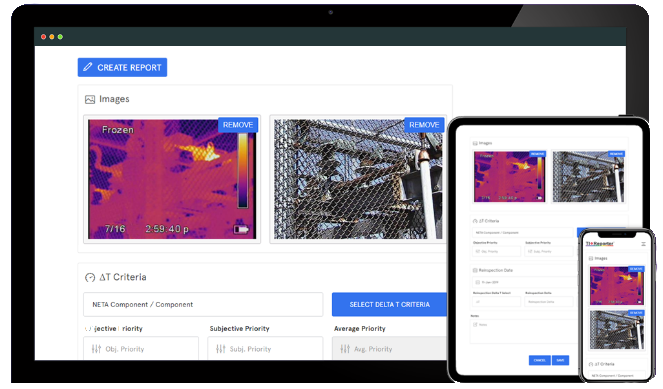
Ti-Reporter Software is a cloud-based thermography reporting software that allows the user to generate standards-compliant reports quickly and easily from the office or in the field. The program works with all thermal imagers and cuts reporting time by up to 80%! TI Reporter operates with all thermal imagers and runs on all devices to include desktops, tablets and mobile phones. The software tool allows a thermographer to generate consistent, professional and standards-compliant reports for a wide variety of applications. Simply complete the preformatted templates following the on-screen prompts and add your images.
Using cloud technology and state-of-the-art software tools, the revolutionary reporting and data management resource is as easy as 1 – 2 – 3.
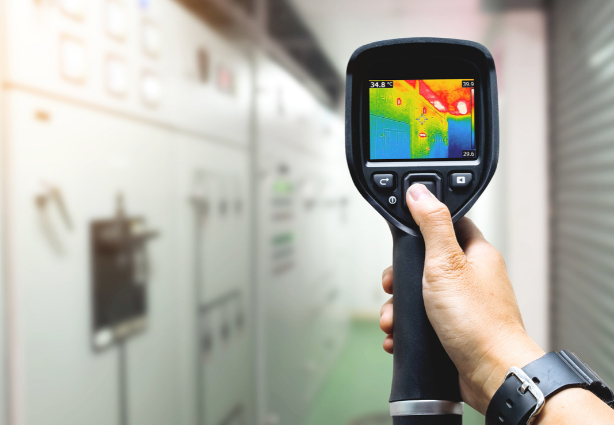
Following the on-screen prompts, enter contact information for a new customer or access information for an existing customer.

Use Preformatted templates to quickly create your report.
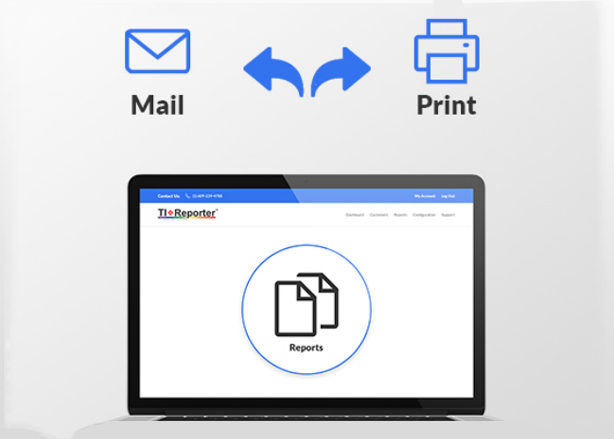
Upon completion, print your report to a PDF and email to customers and colleagues.
Create customized reports for six different thermography applications.
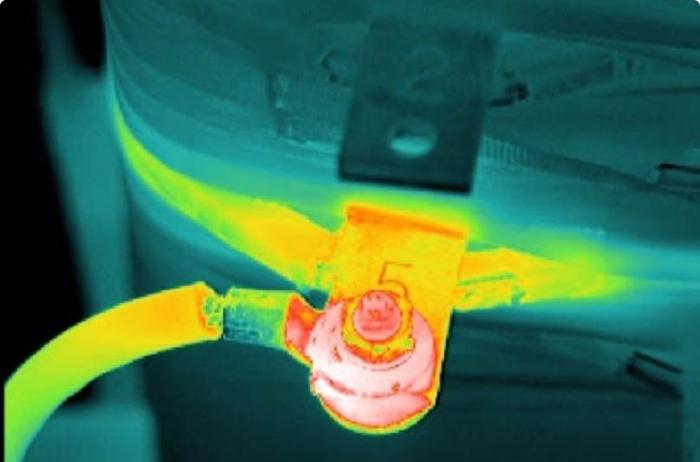
Choose from Delta T or Absolute Temperature report formats.
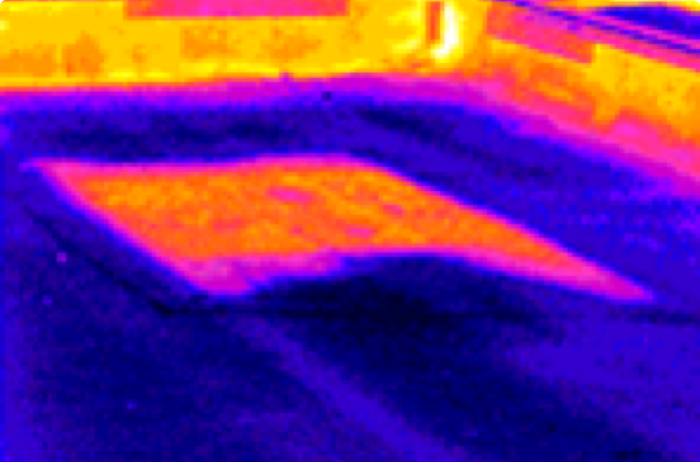
Record data for quality assurance or preventive maintenance inspections.
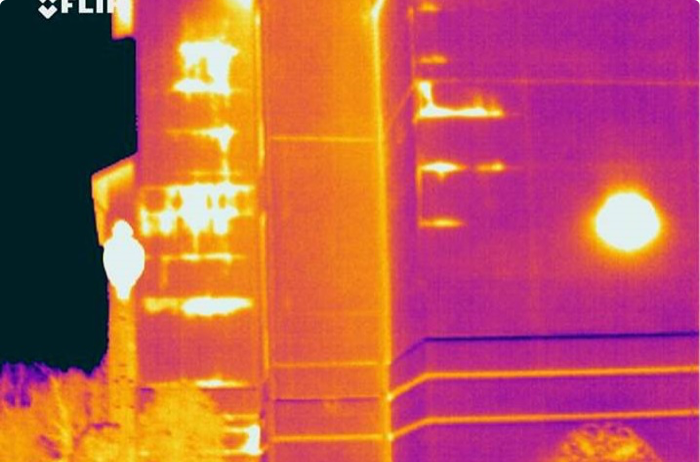
Properly document evidence of energy loss or water infiltration.
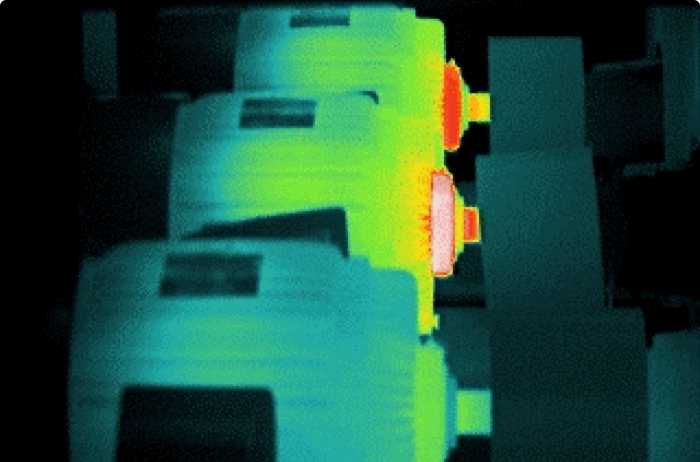
Perform trending for stationary or rotating equipment.
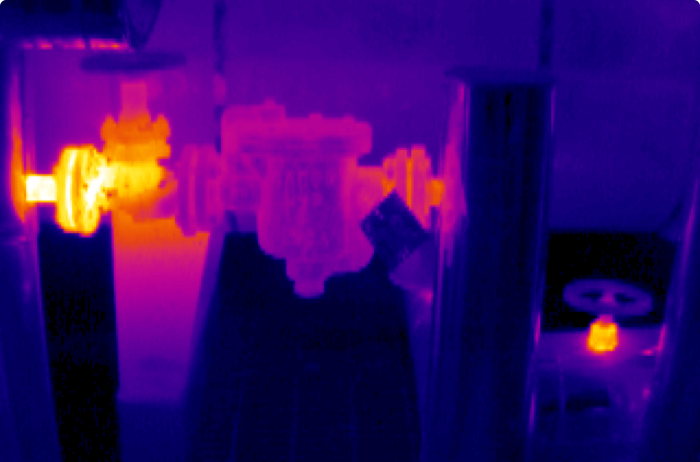
Records data for steam systems, boilers and processing equipment.
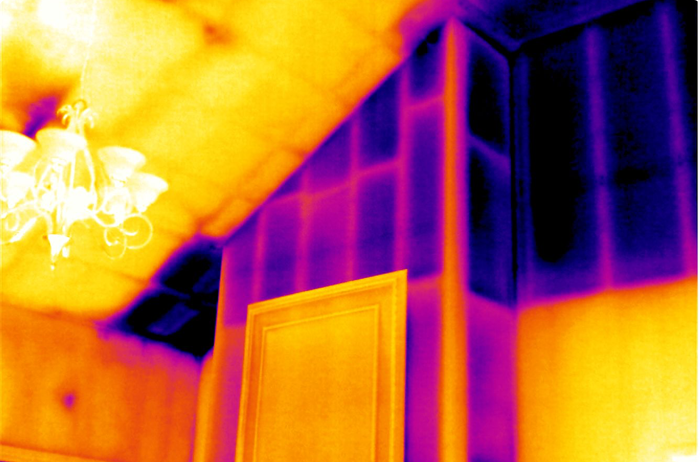
Report forms can be used for property condition assessment or energy audits.
At Global Training Solutions Inc., we provide learning solutions for your specific organizational needs. Get in touch and let us help you create a high-impact training and development program.